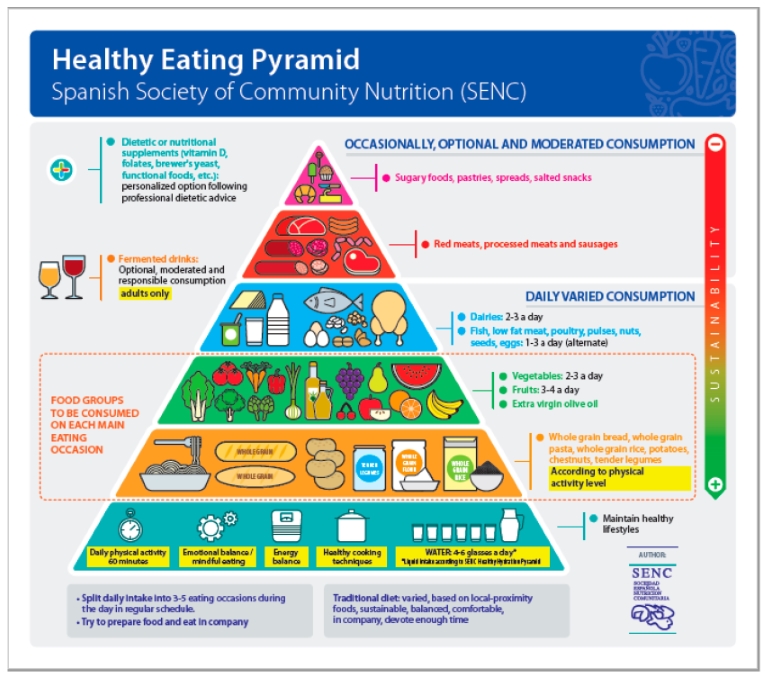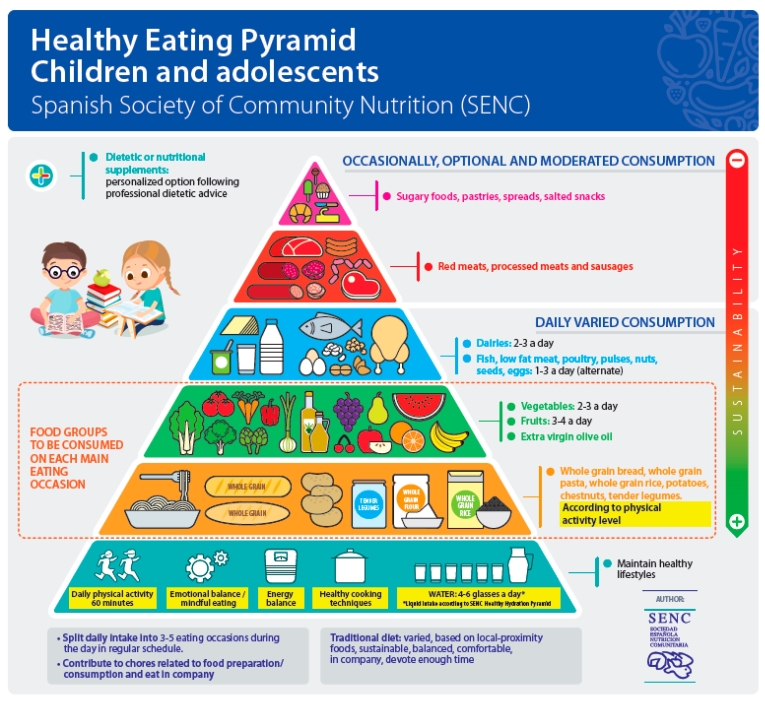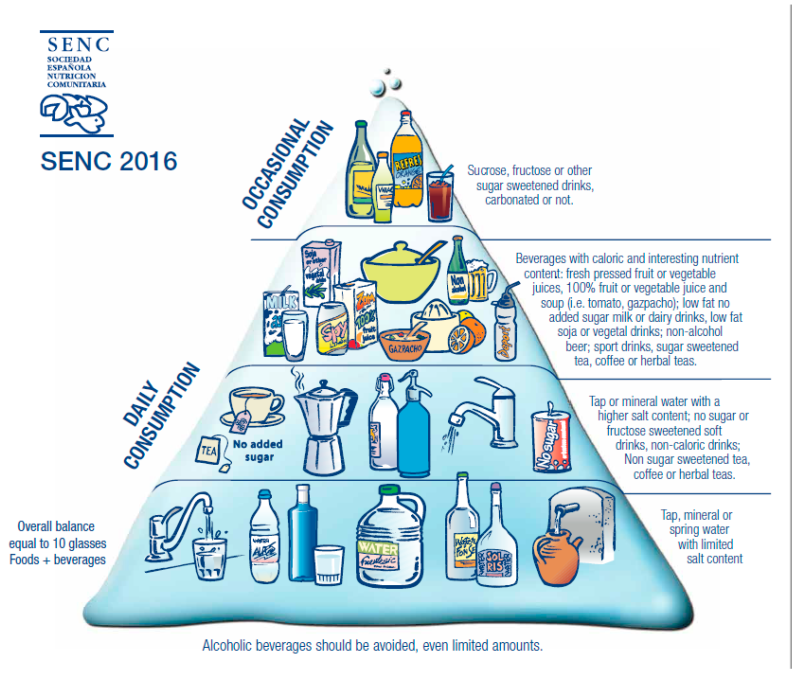Diet-related risk factors and physical inactivity are among the leading risk factors for disability and are responsible for a large proportion of the burden of chronic non-communicable diseases. Food-based dietary guidelines (FBDGs) are useful tools for nutrition policies and public health strategies to promote healthier eating and physical activity. In this paper, is discussed the process followed in developing the dietary guidelines for the Spanish population by the Spanish Society of Community Nutrition (SENC) and further explain the collaboration with primary healthcare practitioners as presented in the context of the NUTRIMAD 2018 international congress of SENC. From a health in all policies approach, SENC convened a group of experts in nutrition and public health to review the evidence on diet-health, nutrient intake and food consumption in the Spanish population, as well as food preparation, determinants and impact of diet on environmental sustainability. The collaborative group drafted the document and designed the graphic icon, which was then subject to a consultation process, discussion, and qualitative evaluation. Next, a collaborative group was established to plan a dissemination strategy, involving delegates from all the primary healthcare scientific societies in Spain. A product of this collaboration was the release of an attractive, easy-to-understand publication.
Consumption of alcoholic beverages is a controversial issue. The guidelines do not encourage or recommend alcohol consumption for health but acknowledge the fact that a high proportion of citizens use alcoholic beverages on a daily basis. The advice reminds that the only evidence supporting alcoholic beverages is bounded in the context of the Mediterranean diet to limited amounts of low-grade fermented alcoholic beverages (wine, beer) with meals. Taking into account the prevalence of the Mediterranean culture in the country, the uses and customs of the population, and the scientific evidence available, we deemed appropriate to adopt the following position:
- People who do not use alcoholic beverages should not start drinking because of the potential beneficial effects attributed to low-grade fermented alcoholic beverages. An optimal diet can achieve equivalent results without the potential risks of drinking alcoholic beverages, even if they have low alcohol content.
- Drinks that can be considered are limited exclusively to low-grade fermented alcoholic beverages (wine, beer, cider, cava, or champagne (sparkling wines with double fermentation).
- The evidence supporting a beneficial effect of consumption refers to alcohol consumption in the context of the Mediterranean diet, with meals, and in very moderate amounts (15 g alcohol/day).
- Such tolerance refers exclusively to adults with a consumption limited to no more than 2 glasses of wine or equivalent (200 mL; <40 g alcohol/day) for men and no more than 1 glass for women (100 mL; <20 g alcohol/day).
- People with chronic diseases or taking medications or supplements should consult with a doctor and follow recommendations at all times, even if advised to avoid alcohol altogether.
- Spirits and liquor should be avoided in the context of a healthy diet and lifestyle.
- In Spain, there are good-tasting, socially acceptable alternatives for private or social consumption of alcoholic beverages, such as non-alcoholic beer, de-alcoholized wines, and similar products available in virtually all establishments in the country.
Regarding the location of fermented beverages external to the main content of the Healthy Eating Pyramid and the specific section in the Food-based dietary guidelines (FBDGs), the decisive factor was that, in Spain, wine is legally considered “food” (Ministry of Agriculture, Fisheries and Food), aside from its important cultural, gastronomic, economic, and social value. Excluding this reference and similar beverages from the graphical representation or from the contents of the FBDGs would not per se prevent excessive or inappropriate consumption and, most importantly, it would mean that the Guide could not clearly provide criteria and limits for consumption or its reasoned exclusion.
Read full text at: https://www.mdpi.com/2072-6643/11/11/2675/htm


